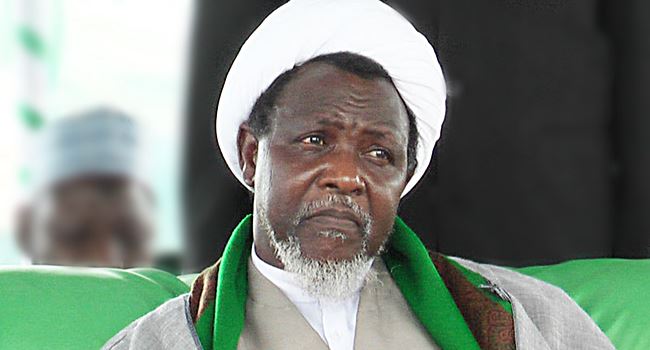News
UN rapporteur faults proscription of IMN by Nigerian government

A United Nations special rapporteur on extrajudicial, summary and arbitrary executions, Agnes Callarmard, has faulted the proscription of Islamic Movement of Nigeria (IMN), saying the group was banned because of what the Nigerian government thinks it can become and not what it did.
Callamard also disputed claims by government that the Shi’ite group was responsible for the killing of a Deputy Commissioner of Police, Usman Umar and a Channels Television reporter, Precious Owolabi in July during a protest by the group in Abuja.
The U.N. special rapporteur stated this in Abuja on Monday at a press briefing, where she expressed concern about Nigeria’s growing cases of extrajudicial killings, concluding that government’s allegation against the sect was problematic, failing to meet international standards.
It would be recalled that a protest organised by the IMN to press for the release of its leader, Sheikh Ibraheem El-Zakzaky had turned violent in a faceoff with security agencies, leading to the death of the police officer and the reporter.
The police has however failed to provide evidence that the DCP and the reporter were killed by the protesting Shi’ites.
Read also: Atiku urges AU to act against South Africa over xenophobic attacks
Shortly after that, the Nigerian government approached a court which declared the group a terrorist organisation and proscribed it.
Ms Callamard, who described Nigeria as a “pressure cooker of internal conflict”, condemned the rampant use of excessive force by the military and police and challenged the Nigerian government to conduct forensic and scientific inquiry before reaching conclusions.
“The overall situation I have found is one of extreme concern”, she said, adding that in many cases, the government failed to conduct effective investigations and meaningful prosecution.
“The lack of accountability is on such a scale that pretending this is nothing short of a crisis will be a major mistake. If ignored, its ripple effect will spread in the sub-region given the country’s important role in the continent,” she warned.
She further highlighted that dangers inherent in the lack of accountability, saying it could lead to a breakdown of confidence in the government, and may lead people to provide themselves with their own form of security.
“The breakdown of that confidence can only bring those people to look for alternatives that may be militias, self-defence, other groups that are prepared to protect them and provide them with stronger security,” she said.
According to her, the decision by the Nigerian government had not presented any evidence to justify its decision to outlaw the IMN, adding that the ban appeared to be based on what the government thought IMN could become rather than what it did.
Join the conversation
Support Ripples Nigeria, hold up solutions journalism
Balanced, fearless journalism driven by data comes at huge financial costs.
As a media platform, we hold leadership accountable and will not trade the right to press freedom and free speech for a piece of cake.
If you like what we do, and are ready to uphold solutions journalism, kindly donate to the Ripples Nigeria cause.
Your support would help to ensure that citizens and institutions continue to have free access to credible and reliable information for societal development.
























